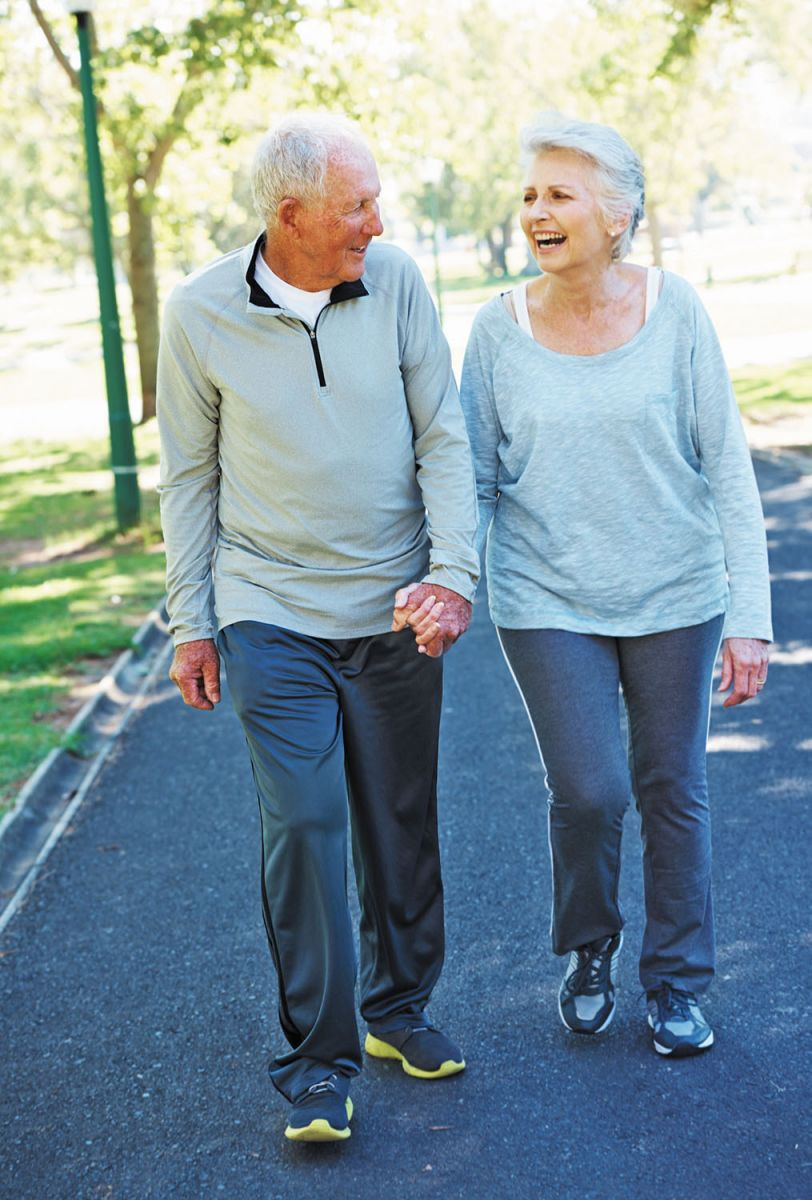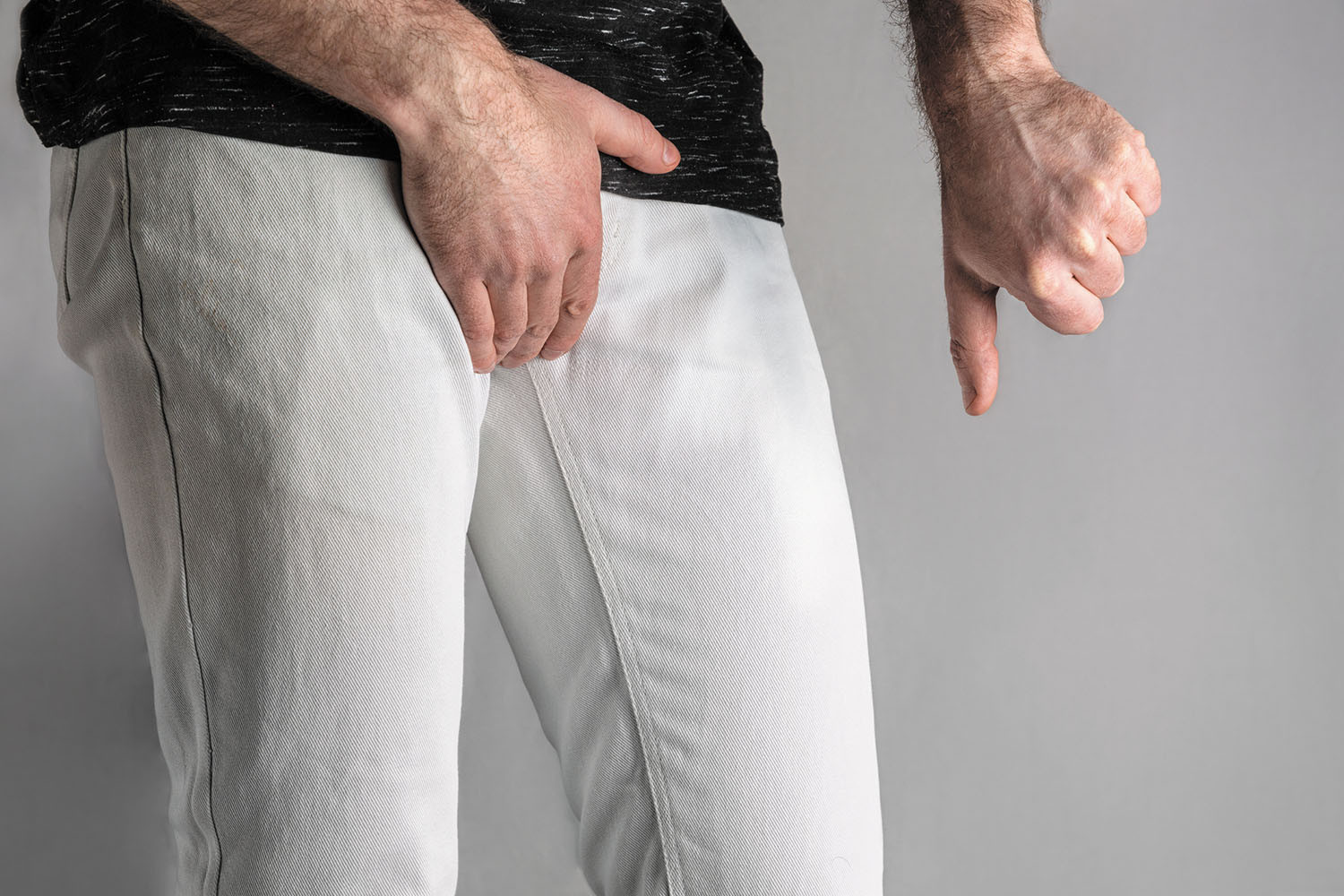
5 timeless habits for better health

What are the symptoms of prostate cancer?

Is your breakfast cereal healthy?

When pain signals an emergency: Symptoms you should never ignore

Does exercise give you energy?

Acupuncture for pain relief: How it works and what to expect

How to avoid jet lag: Tips for staying alert when you travel

Biofeedback therapy: How it works and how it can help relieve pain

Best vitamins and minerals for energy

Should you take probiotics with antibiotics?
Pain Archive
Articles
Recovering from heart surgery
Here's what to expect once you're home from the hospital.
Every day, thousands of people in the United States undergo open-heart surgery. This major operation leaves them with a long chest incision — and a lengthy recovery. The time it takes to fully heal will depend on the person's age and overall health and the complexity of the operation.
The most common is coronary artery bypass grafting, which uses a blood vessel taken from another part of the body to bypass a blocked heart artery. Open-heart surgery is also done to repair or replace a faulty heart valve or to repair damaged or abnormal areas of the heart.
Questions to ask before getting a hip replacement
Bring this article to your doctor appointment.
You've run out of options for hip pain and you're facing a possible hip replacement (see "Anatomy of a hip replacement"). Once your doctor has determined that you're a good candidate for surgery — based on your medical history, images of your hip, steps you've taken to reduce pain (such as weight loss and low-impact exercise programs), and how pain has affected your daily function — you'll need to ask lots of questions.
"This is not a time to be shy. Be aggressive and get answers. The doctor expects that," says Dr. Scott Martin, an associate professor of orthopedic surgery at Harvard Medical School and medical editor of the Harvard Medical School Guide Total Hip Replacement.
Put a song in your heart
Listening to music may offer a range of benefits for cardiovascular health.
Music's capacity to evoke emotion is one reason people love listening to it so much. Whether you want to feel energized and uplifted or calm and relaxed, you can probably conjure a few examples of melodies that put you in your desired frame of mind. As it turns out, those mood-related benefits may extend to your heart.
"The beating of your heart and your fight-or-flight system are regulated by your brain. Once you understand that, it makes sense that listening to music that evokes a certain mood might affect the heart's function," says Dr. Andrew Budson, a lecturer in neurology at Harvard Medical School and chief of cognitive and behavioral neurology at the VA Boston Healthcare System.
Self-care for bursitis
These painful flare-ups can occur suddenly and for no apparent reason. Here's what you can do about them.
Have you ever woken up with a mysterious egg-shaped swelling on your elbow or knee and have no clue what caused it? There is a good chance you have bursitis.
"Bursitis is definitely more common as you get older and just comes with the territory of living a longer and more active life," says Dr. Robert Shmerling, senior faculty editor at Harvard Health Publishing and Corresponding Member of the Faculty of Medicine at Harvard Medical School.
Googling "chest pain" during the COVID-19 pandemic
Research we're watching
Google searches for "chest pain" spiked in March and April of 2020 during the initial sharp rise in COVID-19 infections, according to a new study. The findings suggest that people were attempting to self-diagnose heart attacks — and may explain why fewer people sought treatment for heart attacks in hospitals during the pandemic.
The study relied on Google Trends, a tool that monitors search term queries over time. The authors looked at searches for "chest pain" and five control terms — "toothache," "abdominal pain," "knee pain," "heart attack," and "stroke" — from January 2017 through May 2020. Searches for chest pain (a common symptom of heart attack but not COVID-19) spiked in states with high rates of COVID-19 infection (New York, New Jersey, and Illinois), while searches for other terms stayed steady.
Take a soak for your health
The benefits of tub baths are more than skin deep. Bathing regularly can help ease pain and potentially benefit your heart.
You know that sinking into a warm bath at the end of a long day can help you relax and unwind, but did you know it might also be good for your health? Research shows that using baths as a form of medical therapy, sometimes referred to as balneotherapy (see "Balneotherapy, or bath therapy"), can bring health benefits — among them, easing certain types of chronic pain, helping your skin, and potentially even improving heart health.
Balneotherapy, or bath therapyThe name balneotherapy is derived from the Latin word balneum, or bath. Today, balneotherapy may refer to the use of a typical bath (warm or cold) as a treatment for an illness or condition. However, the term historically and sometimes still refers to mineral baths or mineral-rich mud packs to coat the body. Some medical professionals also consider saunas or steam baths as balneotherapy. |
Unlocking the mystery of chronic pelvic pain syndrome
The condition is an all-too-real problem for men, and one of the more difficult to treat.
After age 50, men often have periods of discomfort "down there." It could be a cramping, aching, or throbbing pain in and around your pelvis and genitals. You also may have issues in the bedroom and bathroom. While the problems are real, the cause is often difficult to pinpoint.
It's called chronic pelvic pain syndrome (CPPS) — also known as chronic prostatitis — and it's one of the most puzzling and difficult-to-manage conditions for older men.
Diffuse Pain
We're sorry you have pain!
The word "diffuse" means "widespread" and refers to pain that is more or less all over, or at least in many areas. The goal of this guide is to provide information while awaiting evaluation with your doctor, or for additional information after you have seen him or her. Please keep in mind that this guide is not intended to replace a face-to-face evaluation with your doctor. The diagnoses provided are among the most common that could explain your symptoms, but the list is not exhaustive and there are many other possibilities. In addition, more than one condition may be present at the same time. For example, a person with rheumatoid arthritis could also have tendonitis.
Do you have severe diffuse pain with fever, redness over the skin or joints, marked swelling, inability to use the muscles or joints, or recent significant trauma (a fall, car accident, etc.)?
Foot Pain
We're sorry to hear you have foot pain!
Please keep in mind that this guide is not intended to replace a face-to-face evaluation with your doctor. The goal of this guide is to provide information while awaiting evaluation with your doctor or additional information after you have seen him or her.
Foot pain may develop for a number of reasons -- fracture and infection are among the most serious while sprains and arthritis are among the most common. There are rare causes of symptoms that will not be included here and would require more detailed evaluation than this guide can provide.
Severe pain, swelling, bruising, or inability to bear weight are "alert" symptoms that could indicate serious injury to a bone or ligaments. When accompanied by fever, an infection becomes a major concern. However, most people with foot pain have no serious or dangerous cause. In fact, many have pain due to poorly fitting or tight shoes; for women, high heels only make a tight shoe more uncomfortable. Try changing your footwear to something with more cushion, support and room for your feet -- and read on to learn more about the causes of foot pain.
Certain symptoms suggest a serious cause of foot pain that requires prompt attention. It's important to ask questions about these symptoms first.
Did your pain begin after a significant injury, such as a fall or car accident?
Along with foot pain, have you noticed swelling or redness in your foot (or feet)?
Stress-induced brain activity linked to chest pain from heart disease
Research we're watching
Doctors have long known that mental or psychological stress can lead to angina (chest pain or discomfort caused by inadequate blood to the heart). Now, new research reveals a direct correlation between angina and stress-related activity in the brain's frontal lobe. The study included 148 people with coronary artery disease with an average age of 62. All underwent brain and heart imaging tests done in conjunction with mental stress testing, which involved mental arithmetic and public speaking. Imaging tests were also done under "control" conditions, which featured simple counting and recalling a neutral event. Researchers monitored the participants for angina during the tests; they also assessed angina rates again after two years.
Activity in the inferior frontal lobe area of the brain during mental stress was linked to the severity of self-reported angina, both during the brain imaging and at the two-year follow-up. A better understanding of how the brain reacts to stress may be an important consideration for doctors who treat angina, according to the study's lead author. The study was published online Aug. 10, 2020, by the journal Circulation: Cardiovascular Imaging.

5 timeless habits for better health

What are the symptoms of prostate cancer?

Is your breakfast cereal healthy?

When pain signals an emergency: Symptoms you should never ignore

Does exercise give you energy?

Acupuncture for pain relief: How it works and what to expect

How to avoid jet lag: Tips for staying alert when you travel

Biofeedback therapy: How it works and how it can help relieve pain

Best vitamins and minerals for energy

Should you take probiotics with antibiotics?
Free Healthbeat Signup
Get the latest in health news delivered to your inbox!
Sign Up










